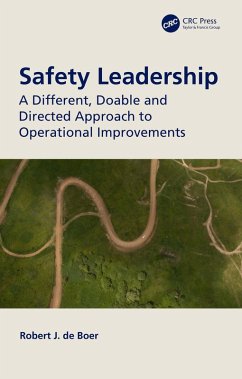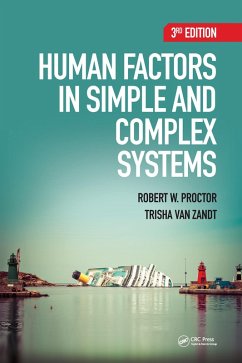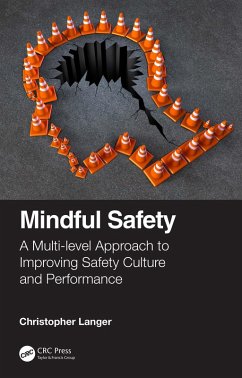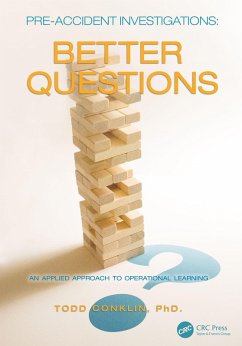
Introduction to Human Factors for Organisational Psychologists (eBook, ePUB)
Versandkostenfrei!
Sofort per Download lieferbar
46,95 €
inkl. MwSt.
Weitere Ausgaben:

PAYBACK Punkte
23 °P sammeln!
This text introduces industrial and organisational psychologists to the discipline of human factors. It also provides a range of tools necessary for the application of human factors strategies and techniques in practice. The text is intended to respond to the growing demand for organisational psychologists to assist in the development and evaluation of initiatives that are intended to optimise the relationship between workers and the operational environments with which they engage.The book. Contains practical strategies and examples that are intended to guide readers. Combines human factors an...
This text introduces industrial and organisational psychologists to the discipline of human factors. It also provides a range of tools necessary for the application of human factors strategies and techniques in practice. The text is intended to respond to the growing demand for organisational psychologists to assist in the development and evaluation of initiatives that are intended to optimise the relationship between workers and the operational environments with which they engage.
The book
. Contains practical strategies and examples that are intended to guide readers
. Combines human factors and organisational psychological concepts in a single volume
. Covers context-related examples that illustrate the application of human factors tools and principles
. Presents an integrated approach to human factors from an organisational psychological perspective
The text begins by discussing the application of human factors in organisations, together with notions of risk and uncertainty. Frameworks for human factors are considered, including error-based and system safety approaches. It explores the links between individual differences and human factors, and it covers group processes and the impact on team performance, including the role of leadership and followership. The book also presents a range of tools and techniques that can be applied by organisational psychologists to acquire human factors-related information and develop an understanding of the situation or factors that may explain human behaviour.
The book
. Contains practical strategies and examples that are intended to guide readers
. Combines human factors and organisational psychological concepts in a single volume
. Covers context-related examples that illustrate the application of human factors tools and principles
. Presents an integrated approach to human factors from an organisational psychological perspective
The text begins by discussing the application of human factors in organisations, together with notions of risk and uncertainty. Frameworks for human factors are considered, including error-based and system safety approaches. It explores the links between individual differences and human factors, and it covers group processes and the impact on team performance, including the role of leadership and followership. The book also presents a range of tools and techniques that can be applied by organisational psychologists to acquire human factors-related information and develop an understanding of the situation or factors that may explain human behaviour.
Dieser Download kann aus rechtlichen Gründen nur mit Rechnungsadresse in A, B, BG, CY, CZ, D, DK, EW, E, FIN, F, GR, HR, H, IRL, I, LT, L, LR, M, NL, PL, P, R, S, SLO, SK ausgeliefert werden.













